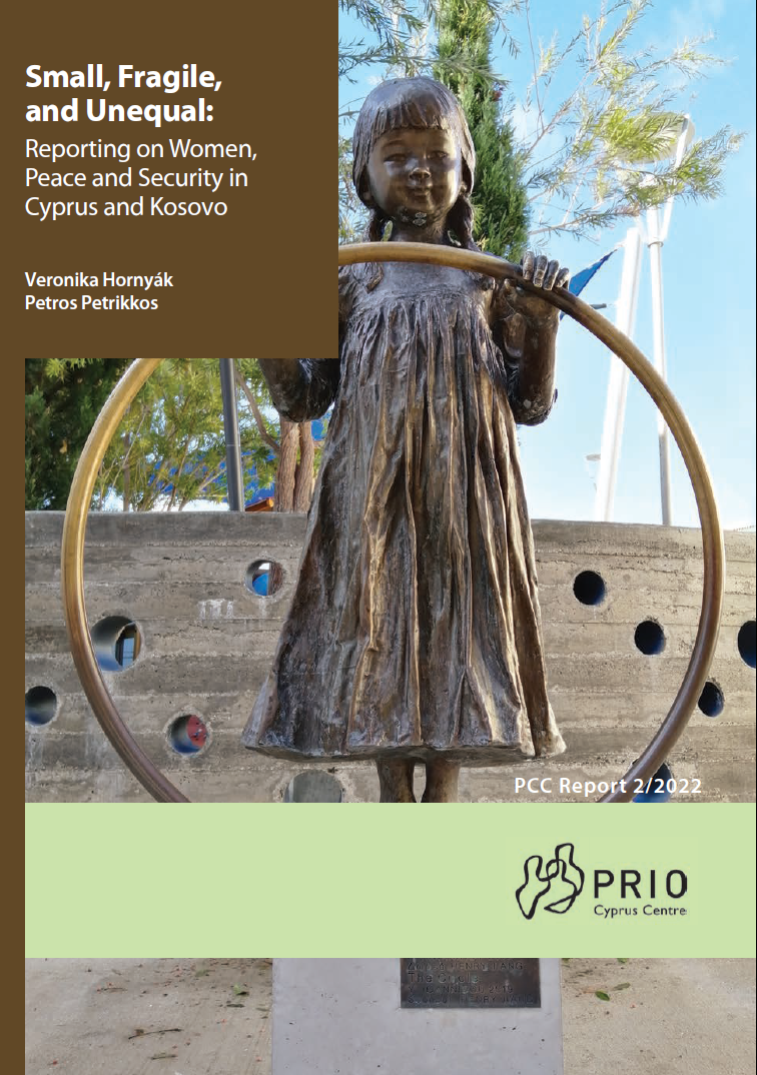
This report looks at two distinct yet comparative cases: Cyprus and Kosovo, two small communities with a violent past.
Specifically, the report seeks to develop a better understanding of the policies on gender and security in peacekeeping missions /operations in cases of protracted conflict, with Cyprus and Kosovo as case studies. In doing so, feminist thinking within Security Studies is integrated into a revised approach to Securitisation Theory, which is employed as a model to conceptualise protracted conflicts in small states and communities. We understand a 'protracted conflict' as an "intense and violent conflict over important issues persisting for long periods of time." Both Cyprus and Kosovo, while currently at ceasefire, exist within facilitated peace processes, with a looming risk of violence breaking out again. In both country contexts, the link between gender and security in the comparative sense is an understudied concept, with limited literature on a useful analysis of (a) Cyprus as a case study in terms of gender-security in peace operations, and (b) a comparative examination between Kosovo and Cyprus. While most research examining the gender dimension has focused on newer, more modern missions and operations, such as EULEX Kosovo, there is a considerable gap in research and policy for older missions, with particular reference to Cyprus. As such, this report examines Kosovo and Cyprus in order to assess the differences in the missions and to highlight the gaps between older and newer missions, with emphasis on the link between gender and security in peace operations. The objective is to determine the best peacekeeping practices in Kosovo, which can then be made available for the case of Cyprus.
Download report here





